What is the Wagner Group and how could it overthrow Putin?
A shocking coup attempt rocked Russia on Friday, June 24th, when a private army of mercenaries known as the Wagner Group stormed the Kremlin with tanks and weapons, aiming to overthrow Putin and seize control of the country. How did this rogue group turn against their former patron and ally, and what are the consequences for Russia’s future and stability? Join us as we unravel this thrilling and dramatic story in today’s new narrative! 🔥🇷🇺👑
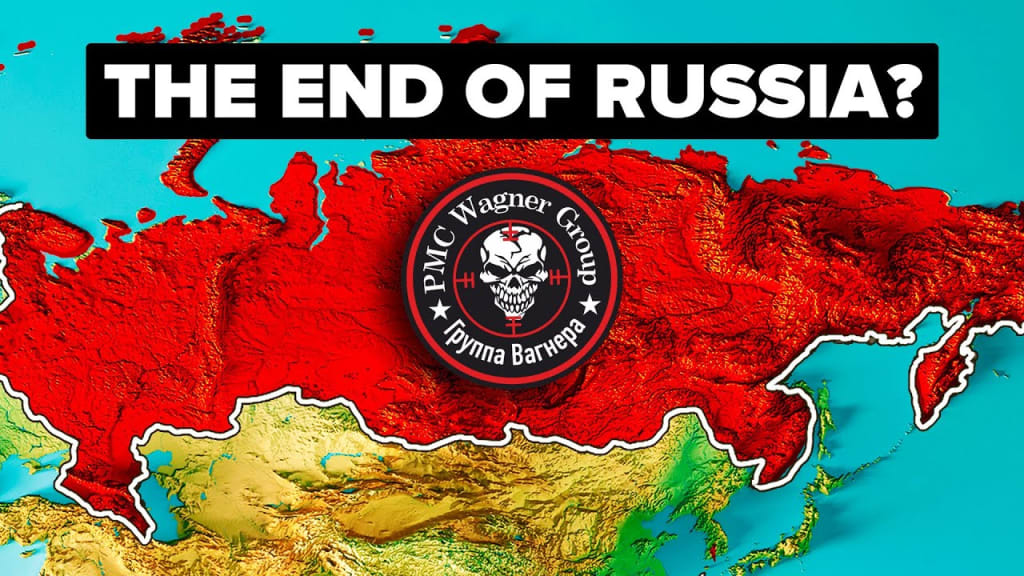
A shocking coup attempt rocked Russia on Friday, June 24th, when a private army of mercenaries known as the Wagner Group stormed the Kremlin with tanks and weapons, aiming to overthrow Putin and seize control of the country. How did this rogue group turn against their former patron and ally, and what are the consequences for Russia’s future and stability? Join us as we unravel this thrilling and dramatic story in today’s new narrative! 🔥🇷🇺👑
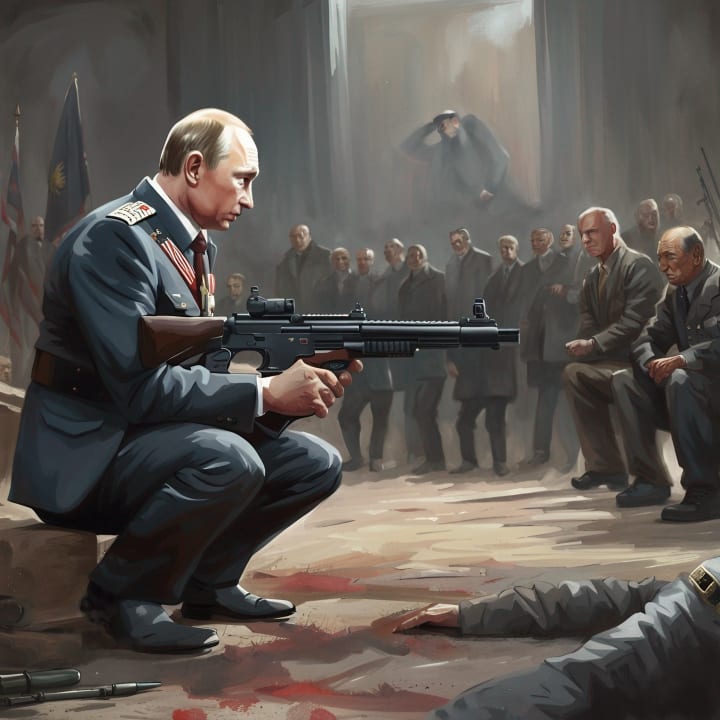
How a Russian Mercenary Nearly Overthrew Putin
On Friday, June 24th, 2023, the world witnessed one of the most shocking and unexpected events in recent history: a coup attempt against Russian president Vladimir Putin by one of his own allies, Yevegeny Prigozhin, the leader of the infamous Wagner Group, a private military company (PMC) that has been fighting on behalf of Russia in Ukraine and other conflicts around the world.
The coup attempt lasted for less than 48 hours, but it exposed the fragility and vulnerability of the Russian state, as well as the deep divisions and rivalries within its military and political elite. It also revealed the extent of Prigozhin's ambition and power, as well as his cunning and ruthlessness.
But how did this happen? What motivated Prigozhin to turn against Putin? And what were the consequences of his failed coup? In this blog post, we will try to answer these questions based on the information we have gathered from various sources on the web.
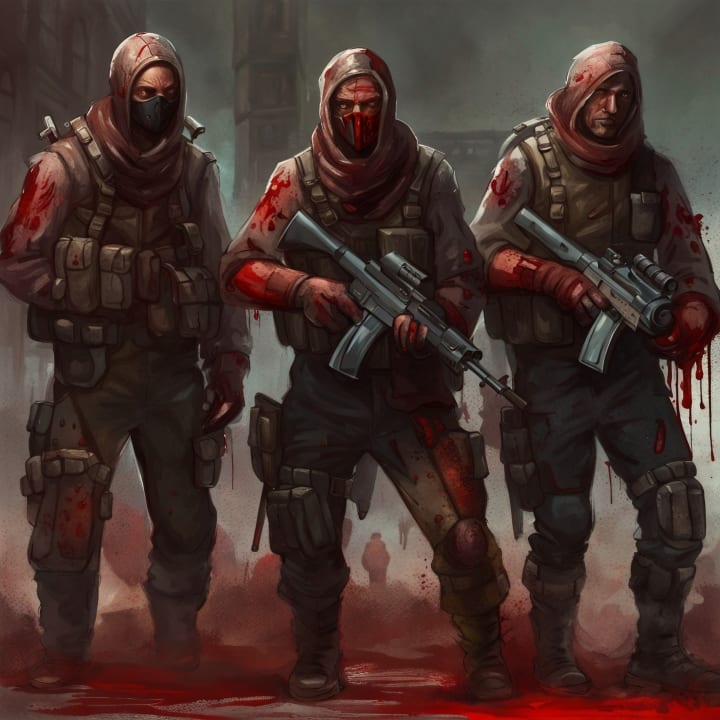
The Origins of Wagner Group
Wagner Group is not an ordinary PMC. It is a highly secretive and powerful organization that operates as an extension of the Russian government itself, undertaking operations around the world on behalf of Russian interests while providing plausible deniability.
Wagner Group was created by Prigozhin, a former convict turned billionaire businessman who has close ties to Putin. Prigozhin is also known as "Putin's chef", because he owns a catering company that provides food for the Kremlin and other state institutions.
Prigozhin has been involved in various shady and illegal activities, such as meddling in foreign elections, spreading disinformation, funding troll farms, and orchestrating assassinations. He has also been sanctioned by the US and other countries for his role in these activities.
Prigozhin's main asset, however, is Wagner Group. The PMC was formed in 2014, after Russia annexed Crimea and intervened in eastern Ukraine. Prigozhin saw an opportunity to profit from the conflict by sending his fighters to support the pro-Russian separatists. He also saw a chance to gain favor with Putin by doing what the Russian army could not do openly: wage a covert war against Ukraine.
Wagner Group quickly grew from a small, light infantry force into a formidable army in its own right. Unlike other PMCs, Wagner operates a significant amount of its own heavy equipment, including main battle tanks, artillery, air defenses, and even helicopters.
The group has operations all over the world, but its most valuable assets are multiple mines in Africa which enrich Prigozhin and make Wagner a self-funded operation, nearly completely independent of the Russian government. It is this independence that would prove deadly to Vladimir Putin, who hadn't realized that he had given his favorite dog way too much leash.
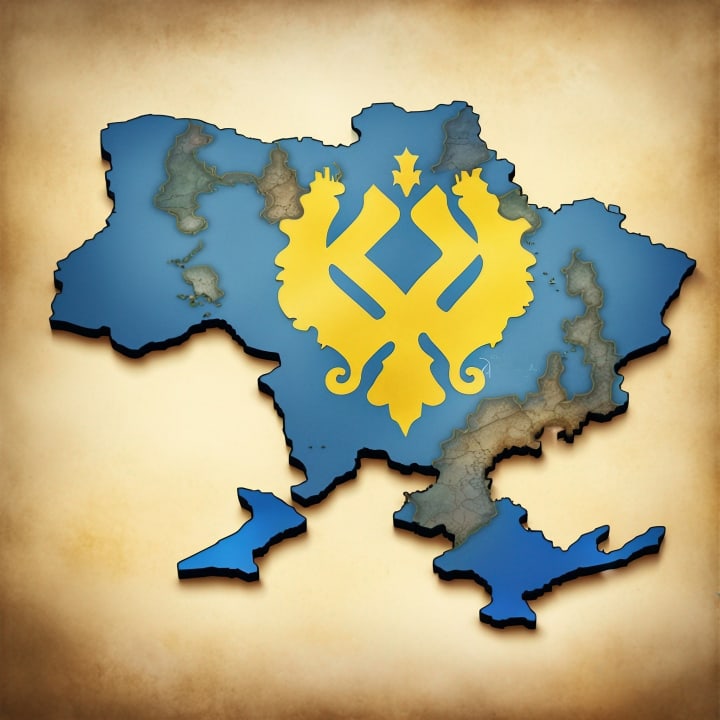
The Battle of Bakhmut
The seeds of Russia's greatest internal catastrophe since the fall of the Soviet Union were planted in the battle of Bakhmut, a town in eastern Ukraine that became the focal point of the entire war.
The town was strategically insignificant save for one thing: the Russians wanted it badly. When Ukraine realized just how many casualties the Russian Federation was willing to tolerate for its capture, it immediately became a symbol of resistance and defiance.
The formerly strategically worthless town was now on the lips of every observer around the world, quickly becoming the greatest repository of sunflower fertilizer as the Russians continued to stack their casualties up attempting to take it. Russia has not had a very good time during this war, and Vladimir Putin was desperate for a win. Hot on the heels of the stunning Ukrainian fall counterattack, the Russian army needed an ideological victory- and for a whole lot of really stupid reasons, Bakhmut became that victory.
Suffering anywhere between a five to one to seven to one casualty disparity, Russia nevertheless managed to push the Ukrainians back slowly, meter by meter over the course of a ten month long battle. Somewhere around the mid point though, as casualties and costs were skyrocketing, Prigozhin attempted to strike a deal with Ukrainian intelligence.
According to them, Prigozhin reached out and offered a deal: in exchange for Bakhmut, he would give them the precise locations and dispositions of nearby Russian units. This would enable Ukraine to launch devastating attacks against Russian regular army forces, and all they had to give up was a strategically worthless town that was nothing more than a propaganda victory.
Prigozhin and Wagner would be heroes, while gaining nothing really, and Ukraine could inflict a serious hurt on the Russian army. But Ukraine refused to take the deal. They saw no reason to give up Bakhmut, which was costing the Russians dearly in lives and resources. They also doubted the value and accuracy of Prigozhin's intelligence, which they could get from other sources, such as the US and its spy satellites.
With no deal, the slog for Bakhmut continued, and the mounting costs quickly created tensions within the Russian war effort itself. Prigozhin already had significant differences with Russian Minister of Defense Sergei Shoigu, and his direct number one, Chief of the General Staff, General Valery Gerasimov.
The rivalry had stemmed from a number of sources, but chief amongst them had been several high profile incidents between Wagner and the Russian army, with each blaming the other of purposefully sabotaging each other's efforts. The rivalry came to a head during the conquest of Soledar, a salt mining town that Wagner bled hard to push the Ukrainians out of- only for the Russian army to swoop in at the last minute and claim victory, stealing Wagner's glory out from under them.
The rivalry was not entirely by accident either. Dictators like Vladimir Putin tend to play their subordinates against each other, that way they won't band together to pose a challenge- this likely saved Putin's life in Wagner's insurrection, as it was only the rivalry between Shoigu and Prigozhin that prevented Wagner and the Russian regular army from banding together on the march to Moscow.
Indeed, we have reports of many regular Russian units refusing to stop Prigozhin's Wagner forces, and some even joining him. Had this happened en masse, Putin would have gone the way of countless Russian dictators before him into an early and permanent retirement six feet underground.
But the rivalry between the army and Wagner was toxic to the Russian war effort, and has directly led to Russia's general incompetence in its effort to defeat the much smaller, and less well equipped Ukraine. There are credible allegations of Wagner leaking intelligence to the Ukrainians on the location of Russian officers they wanted to see dead, only for Uncle HIMARS to pay a swift visit with several hundred pounds of high explosives.
Indeed, Russia's loss rate for senior officers has been nothing short of apocalyptic. There are also known incidents of Wagner and the Russian army engaging in brief skirmishes, famously with one Russian colonel ordering Wagner's exit route out of Bakhmut to be mined. For Ukraine, the beef between Wagner and the Russian army has been a godsend. It ensures that Ukraine isn't facing one unified invasion force, but rather a multitude of individual armies all working for their own interests.
None of these forces are incentivized to work together, an indeed purposefully keep vital intelligence to themselves so as to sabotage each other. This was on full display during the battle of Vuhledar, when Wagner, Patriot PMC, and the Russian army all refused to share intelligence- leading to each of the three organization's forces falling into the exact same ambushes.
It would become the greatest tank battle of the war, with 120 armored vehicles destroyed on the Russian side. With Ukraine being steadily pushed out of Bakhmut though, the rivalry intensified between Prigozhin and the Russian Ministry of Defense. Both sides were out for the glory of capturing Bakhmut- if the ten month campaign resulting in an estimated 100,000 casualties both in and around Bakhmut could in any way be called 'glorious'.
As Wagner pushed the Ukrainians to the very outskirts of the town, the Russian army began to launch an attempted pincer attack to beat Wagner there. Prigozhin was furious, and began to claim that the Russian army was purposefully denying his troops the ammunition needed to finish the fight.
This lack of ammo was costing his men's lives, and Prigozhin put out a series of very emotional, and very staged videos of himself ranting against the Russian MOD in front of dead Russian casualties.
It was all a show of course, Prigozhin has never once cared about casualties on either side- but the show has recently been revealed to be even bigger than any of us knew.
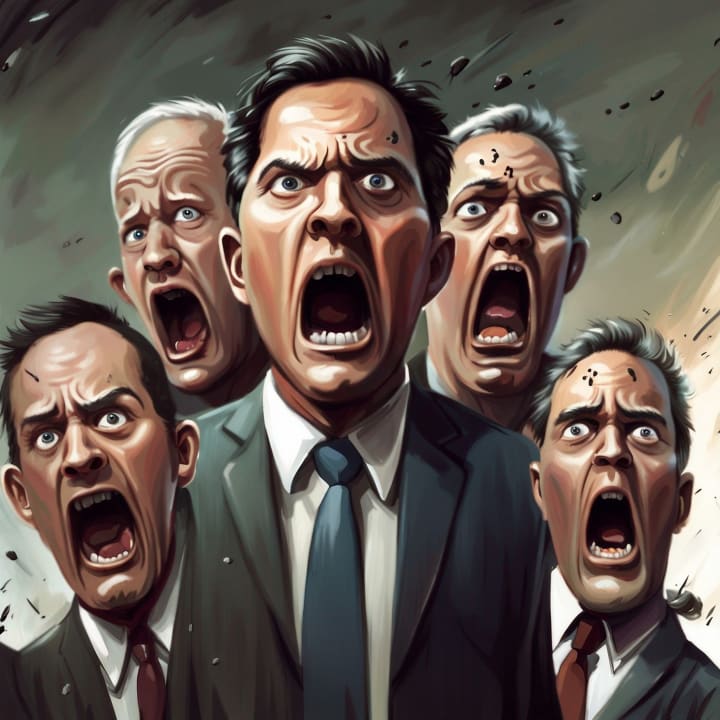
The Coup Attempt
The details remain incredibly thin, and by the time you read this narrative we might have learned new things or corrected some of the information presented here.
However, what we do know is that Prigozhin launched his coup attempt on June 24th, 2023, after what many are convinced was a false flag attack by Wagner forces on itself.
Prigozhin claimed that the Russian army had shelled one of his camps, killing many of his fighters. This was backed up by video evidence of the aftermath of what appeared to be an artillery strike- though immediately most observers noted that the footage did not in any way show evidence of a mass artillery strike as claimed by Prigozhin.
There was also a significant lack of casualties on video, with only one body and several body parts- evidence of some casualties, but not the mass casualties claimed by Prigozhin.
In retaliation, Prigozhin launched what he called a “march for justice”, careful to not term his invasion of Russia a coup. Wagner crossed into Russia via multiple points and headed for the headquarters of the southern military district, the city of Rostov-on-Don.
We know that some Russian forces were sent to attempt to slow down his estimated 15,000 to 25,000 strong force, but per Prigozhin himself, they allowed him and his forces to simply pass on by.
Indeed there is no evidence of anything but very brief and sporadic gun battles between Wagner and Russian military forces. Upon reaching the city of Rostov-on-Don, Wagner surrounded key buildings including the municipal center, the FSB headquarters, and the headquarters of the Southern Military District.
Other than one explosion attributed to an anti-tank mine that may have been accidentally detonated, there was no violence reported- indeed local police forces were seen on video casually greeting Wagnerites in the city.
Prigozhin did claim that the Russian air force had attempted to attack his column with a helicopter, which according to Wagner destroyed a civilian bus traveling alongside the Wagner troops.
In return, Wagner downed at least 3 Russian helicopters, and later a Russian Il-18 aircraft. Leaving a small contingent behind in Rostov, Prigozhin marched north and hours later was confirmed by British intelligence to have captured the major city of Voronezh along with all of its military facilities.
Here there were more reports of combat between Wagner and Russian forces, and Russia appeared to attack its own oil facility with a Ka-52 attack helicopter in order to deny the supplies to Wagner. However, any regular army resistance was swiftly overcome, and the march towards Moscow continued. As Moscow scrambled to set up defenses, it quickly became apparent to observers why Wagner was seemingly unstoppable.
Having scoured social media for video and footage uploaded by Muscovites themselves, we were unable to spot anything more than a handful of armored personnel carriers and some helicopters being deployed by the Russian army, along with some armored trucks from reserve forces.
In just one clip shot by a passerby of the Wagner convoy however we counted four T-72 tanks, numerous Infantry Fighting Vehicles, a Pantsir air defense unit, and multiple towed artillery systems. Basically, Wagner was significantly outgunning the Russian army by any measure according to all available information at the time.
With so much of its reserve inventory dedicated to Ukraine, it comes as no surprise that the Russian military was incapable of stopping an invasion of its own territory-begging the question of what would happen if Ukraine were to suddenly do the same thing.
However, while Wagner was significantly outgunning anything the Russian army could muster together, there was no political support coming for Prigozhin- and this may have been instrumental to him canceling his march on Moscow.
After a series of negotiations with Belarus's Lukashenko, Prigozhin announced an end to his coup attempt, and ordered Wagner forces back to field camps. In exchange, Wagner and Prigozhin received a blanket pardon from Vladimir Putin, and Prigozhin was allowed to leave Russia for Belarus. The question on everyone's mind though is why did Prigozhin launch this short-lived coup, and why did he stop it when it was so wildly successful?
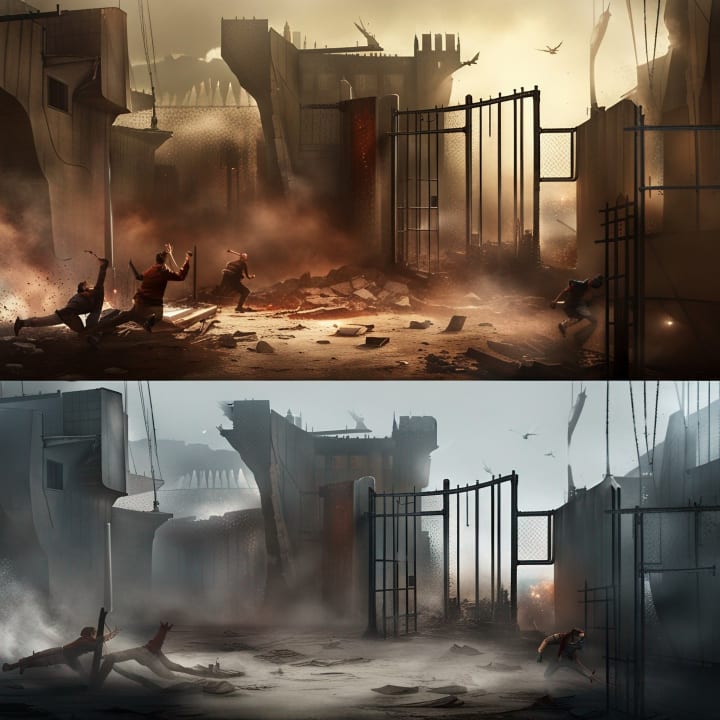
The Motives and Consequences
Details remain scarce, but we can piece together some solid theories based on information available. First, it became evident at the end of the first twenty four hours that while Prigozhin lacked political support, he was enjoying a significant amount of popular support where Wagner traveled.
After the end of the coup was announced, massive crowds gathered in Rostov-on-Don to cheer on Wagner as it departed the city, with the crowds chanting Wager and Prigozhin's name. There is also very credible reports of Russian army units refusing to engage Wagner, and a small number of soldiers even joining him outright. Online, Prigozhin's announcement over Telegram that he was canceling the operation was met with a flood of negative responses from tens of thousands of people who apparently wanted him to continue.
But the wave of popular support wasn't immediately visible to anyone inside of Russia thanks to the government's crackdown on social media and internet use. Prigozhin may not have known just how many were cheering him on back in occupied Rostov-on-Don, or the amount of popularity he was gaining on social media. Before the coup Prigozhin was not well known to most Russians thanks to a media ban on mentioning him or Wagner and the careful curating of news inside Russia to make the Russian army look like heroes.
However, Prigozhin has surged in popularity since the coup- had he known this, perhaps he would have continued marching on Moscow. With no politicians declaring their support for Wagner though, it might have been prudent to end the march when he did- while he could have easily taken Moscow and forced Putin into exile, Prigozhin would have lacked any serious credibility to establish a new government.
Another theory however is that Prigozhin never had any intentions of overthrowing Putin. Rather, he may have become aware of the case already being built against him for treason by the FSB and other Russian legal agencies. Sergei Shoigu for one was very motivated to remove Prigozhin as a rival, and could wield the Russian legal apparatus to do just that.
Prigozhin was also proving to be a thorn in Putin's side, with moves that some took as seditious or outright challenges to Putin's power. Knowing the consequences of legal charges against him, Prigozhin may have seen an armed insurrection his only option, and knowing how weak the Russian army was he could have calculated that all he needed to do was get close to Moscow to force Putin into pardoning him.
This would have been a calculated risk, but one very well calculated, and could explain why Wagner opted to launch an attack south towards Rostov-on-Don from the Ukrainian border and north towards Moscow- instead of massing for one massive thrust northwards. Capturing a major city like Rostov-on-Don, which housed the Southern Military District's headquarters, and Voronezh would have rattled Putin significantly, as both cities are of critical importance to the war effort.
Further, if Prigozhin had seriously wanted to launch a coup, he could have coordinated better with Russian partisan forces such as the Russian Volunteer Corps and the Freedom of Russia Legion. Working together, Prigozhin's coup would have been even more devastating, with attacks across multiple Russian regions throwing the government and military into further disarray.
The fact that despite seizing major cities, Prigozhin never took to broadcasting over regular Russian media also speaks to the conclusion that Prigozhin was never serious about removing Putin from power. Wagner and Prigozhin were both immediately cut off from most of their social media channels, and Russian media had been banned from mentioning either Wagner or Prigozhin for weeks already.
Even as President Putin addressed the nation over the crisis, he never mentioned Prigozhin or Wagner by name. Prigozhin could have made his case to the Russian public over traditional media via the numerous broadcast options captured inside of Rostov-on-don and Voronezh- yet there appears to be no evidence that he did this.
That would be a very curious omission for a man attempting to launch a coup of the government, but perfectly in line if the plan was always to simply rattle the government's cage and force them into a pardon and major concessions preventing Prigozhin from being prosecuted.
A final theory, and one that seems increasingly unlikely in the wake of the insurrection, is that this was all for show. Putin and Prigozhin could have organized the entire thing as a way of pinning the blame for the failing war on Sergei Shoigu and General Gerasimov. Prigozhin made numerous statements blaming the Ministry of Defense for misleading the president into this disastrous war, even outright calling typical Russian talking points of Ukraine or NATO preparing to attack Russia false fabrications made up by the Ministry of Defense.
Even once the insurrection was launched, Prigozhin never made any mention of removing Putin- stating numerous times that he was still loyal to the office of the President. Then again this might have just been personal cover by making it seem like he only intended to remove Shoigu and Gerasimov from power, but it could have been carefully orchestrated theater to avoid a direct challenge to Putin, and excuse Prigozhin later as a well-meaning patriot who took things a little too far.
However, we have yet to see the removal of either Shoigu or Gerasimov, and there is no indication that Putin is considering putting an end to this failed war. Thus it becomes more and more unlikely that this was the case. The truth behind Prigozhin's coup may not be known for weeks, months, or even years to come, when other secrets of this war come to light. But given the absolute clown-shoes level of stupidity and incompetence the modern Russian Federation has displayed in the last year and four months, absolutely no theory would surprise us any more.
At this point, we're even willing to believe that Prigozhin simply marched Wagner in the wrong direction and by the time he realized he was invading Russia, he decided to just roll with it in order to avoid the embarrassment and take his chances.

Conclusion
One thing is for sure though, only Ukraine benefits from this chaos. Many pro-revolution activists did their part by flooding Russian media channels with calls for civil war and memes. When the story of this war is written in history books, rest assured that many people did their part in the fight for freedom by trolling as hard as it possibly could.
📝 Sources: With the exception of any explicitly mentioned sources, all articles are grounded in information that is publicly accessible.
About the Creator
Reader insights
Outstanding
Excellent work. Looking forward to reading more!
Top insights
Easy to read and follow
Well-structured & engaging content
Expert insights and opinions
Arguments were carefully researched and presented
On-point and relevant
Writing reflected the title & theme



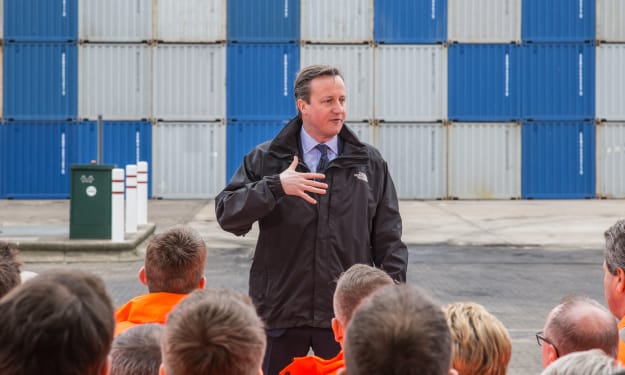


Comments
There are no comments for this story
Be the first to respond and start the conversation.